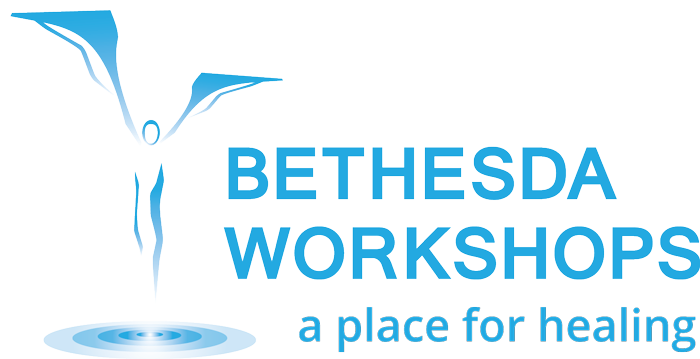For Professionals
“I thank God for this place!”
– Healing For Men Participant
“I thank God for this place!”
– Healing For Men Participant


Trauma leaves a lasting impact on our bodies. Helping our clients heal from trauma can be blocked if we only address the mind and do not include the body. Nervous system regulation is crucial for working through traumatic experiences. It is also a critical component of safety and health in our relationships. Dr. Christine Baker, a somatic experiencing practitioner (SEP), will use experiential exercises to teach therapists how to regulate the nervous system to aid in recovery from trauma. She brings a Christian faith-based approach to this growing field of work.
Dr. Christine Baker is a Licensed Professional Counselor and Supervisor and holds a Ph.D. in Counselor Education and Supervision. She is the founder of Wayfare Counseling and Consulting, operating in both Georgia and Alabama, where she and her team specialize in working with trauma recovery and people struggling with sexual compulsivity and their loved ones. She is EMDR and somatically trained, and she has also completed the Traumatic Stress Studies certificate through The Trauma Center at the Justice Resource Institute under Dr. Bessel van der Kolk.

Any clinician interested in applying for a staff position with Bethesda Workshops must first sit in as a Therapist Observer. In addition, a candidate must meet the following conditions:
After observing a workshop, the executive director may invite a clinician to intern at a workshop by co-leading a group with a Bethesda staff person. After successfully completing an internship, a clinician may be invited to facilitate a small group as the need arises. Group leaders are independent contractors.
As our sexually saturated culture brings into the public eye the problem of pornography and other forms of sexual acting out, more people and their partners are seeking help for sex addiction. As a clinician, pastor, physician or support group leader, you are uniquely positioned to guide or assist the healing process. Are you equipped?
Today, the sex addiction field has evolved enough that excellent training is available. The CSAT program (Certified Sexual Addiction Therapist), developed by Dr. Patrick Carnes and offered through the International Institute of Trauma and Addiction Professionals (IITAP), is considered the gold standard in the field. Clinicians who want to specialize in this area are highly encouraged to obtain this kind of specific, rigorous training.
IITAP has also developed a training for clergy called the Pastoral Sex Addiction Professional. This two-part training equips clergy to respond appropriately to the needs of Christians who seek their advice for issues related to sexual addiction. Visit www.iitap.com for information about either the CSAT or PSAP program.
Bethesda Workshops provides training for clinicians, pastors and lay helpers. Our Therapist Observer program allows professionals to sit in on an actual treatment workshop. We also offer teaching conferences, CEU events, and church seminars.
Unfortunately, many Christian helpers are ill-equipped to address sexual addiction or to help partners of sex addicts. Standard approaches like cognitive-behavioral therapy and using scripture alone are rarely effective. In fact, uninformed Christian counseling often adds to the sufferer’s shame and makes the problem worse. Appropriate training is vital.
Most often – and most damaging – is the error of addressing only the sin component of sexual addiction. Sex addicts already know their behavior is wrong, and they’ve already prayed to be free. Motivating addicts through guilt never works long-term. Exhortations to “Just stop!” or “pray more” only add to the person’s shame. Shame, in turn, further fuels the addiction.
Helpful professionals understand that sexual addiction is a complicated issue. It is multi-faceted problem requiring a multi-faceted approach that covers all the components of this disease: physical, mental, emotional, and relational, as well as spiritual.
Next, untrained helpers often only focus on the specific acting out behavior(s) and ignore the deeper issues. Arresting behavior is the first treatment task, but it’s only the beginning. The sex or relationship addict must uncover, understand, and heal from the underlying issues that drive the behavior. A trauma-based approach (one that examines woundedness and false core beliefs) is essential.
For counselors, pastors, church leaders, life coaches, and support group leaders
Presenter: Marnie C. Ferree, M.A., LMFT and Certified Sex Addiction Therapist
Continuing Education: The online video series is not eligible for continuing education credits.
$159 for entire series; individual segments also available for purchase.
Questions, Call 615-467-5610
Few things in recovery are as difficult for the sex addict as disclosing the secrets about his or her acting out, and probably nothing is as hard for the partner to experience. After disclosure, everything changes. The partner’s world shifts, and life will never be the same. The pain on both sides is nauseating and at times feels unbearable.
Is this sin or is it an addiction? That’s one of the most frequently asked questions about sexual addiction. Our immediate answer is “Yes!” Sexual addiction is both.
At Bethesda Workshops, we unequivocally identify inappropriate sexual and relationship behaviors as sin. We don’t sugarcoat that reality. At the same time, we believe the “sin model” as it’s normally understood is inadequate – too simplistic – to describe this problem and its solution.
Attending a treatment program, including one more long-term than a Bethesda Workshop intensive, is only the beginning of the journey of transformation. Getting help is an important first step, but if that’s all someone does, he or she won’t recover successfully. Genuine, lasting transformation requires more.
We use an eclectic theoretical approach which draws on the best of several treatment modalities. In simplest terms, we use a trauma-based model, which means that we believe trauma (in its broadest sense) is the root of compulsive sexual and relationship behavior. Simply stopping the problematic behavior isn’t enough without healing the woundedness that drives it.
An effective treatment plan for addicts and partners is a dual-track approach. The first rail is arresting the problematic behaviors and creating a healthy lifestyle of accountability and community. The second rail involves healing from the woundedness that fuels the unhealthy coping methods of addiction and codependency. Both tracks are addressed simultaneously, though in the beginning stage, more emphasis is given to achieving and maintaining sobriety (for addicts) and grieving and establishing healthy boundaries (for partners).
While we strongly insist that both partners do their individual work, we also introduce couples therapy early in the process. The addict/partner marriage is in extreme crisis, and we believe couple’s sessions can help the partners stop the bleeding in the relationship. We advocate a marital time-out where both spouses agree to postpone any major decision (like divorce) for 6-12 months while they both work on their individual issues and begin to examine patterns in their coupleship.
Recovery from sexual addiction is a lengthy process. Short-term therapy is insufficient, for sure. Patrick Carnes, Ph.D., asserts it takes three to five years to fully recover. At Bethesda Workshops, we’ve found that those who come through our whole program – an individual workshop for each spouse plus the couples’ workshop – cut that time in at least half.
We often tell couples, “You can do this the hard way or the harder way – there’s not an easy way.” The Bethesda Workshops program greatly accelerates the recovery process, and most people find significant improvement, both personally and within their coupleship, within six to twelve months if they’re willing to do the work.
Recovery is a forever process, ongoing and unending. It’s like our spiritual journey of transformation, which certainly doesn’t stop when we accept Christ as our personal savior. Recovery becomes a way of life, which again, is like our spiritual walk.
Many people find benefit from life-long attendance at recovery groups, at least occasionally. It’s like church attendance, where someone goes for fellowship with other Christians as well as worship. Going to a Twelve Step or faith-based recovery group becomes a tool for healthy living instead of a safeguard against acting out or dealing with someone who is.
Giving back is an important activity for someone in recovery. Offering help and hope to someone new on the journey is an act of gratitude and redeems the pain of sexual addiction for both addicts and partners.
Bethesda Workshops strongly supports the Twelve Step program of recovery, and we believe it is vital to an individual’s success. These programs are rooted in Biblical principles and dovetail cleanly with Christian faith practices.
Alcoholics Anonymous, the original 12 Step program, grew out of the Oxford Group, a Protestant movement that started in England in the early 1900s. The group met in houses and encouraged members through testimonies, Bible study and informal talks.
Bill Wilson, the founder of Alcoholics Anonymous, traced his journey of sobriety back to the Oxford Group. They emphasized deflation of pride, dependence on God, moral inventory, confession, restitution, and working with other suffering people – all clearly Biblical principles. Eventually, Wilson broke away from the Oxford Group because of its rather aggressive evangelism. Still, the group’s principles and Scriptures remained the foundation for AA and the Twelve Steps. Today, a number of Bibles incorporate recovery principles and match Steps to specific Scripture passages. We especially like Serenity: A Companion for Twelve Step Recovery, which includes the New Testament, plus Psalms and Proverbs, along with extensive material about the Twelve Steps.
